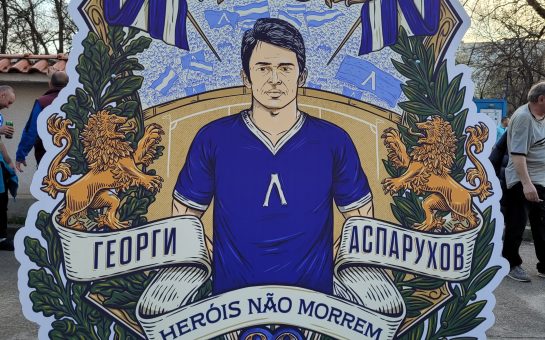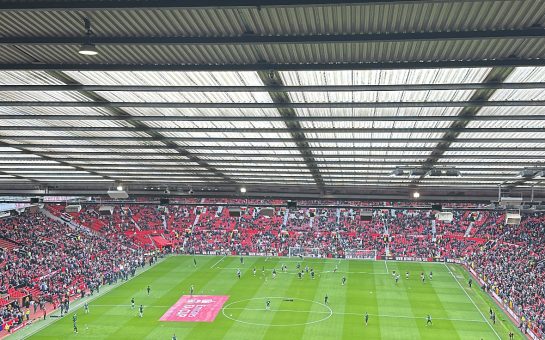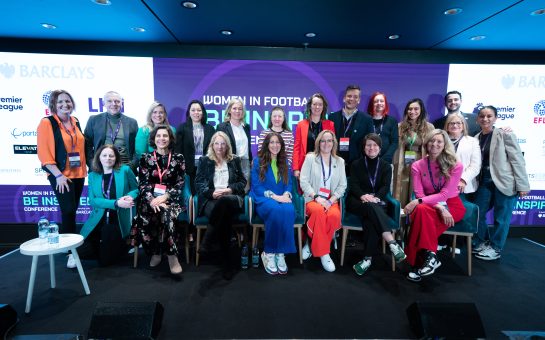To kick off World Cup month MM has chosen 23 players to have impacted on the planet’s biggest sporting extravaganza while at a Greater Manchester club.
It was a selection headache akin to that currently afflicting Vicente del Bosque, with the likes of Edwin van der Sar, Colin Bell, Youri Djorkaeff, Ruud van Nistelrooy and Wayne Rooney all failing to make the final 23.
Sadly Phil Hughes of Bury and Oldham Athletic’s Andy Goram and Gunnar Halle also miss out.
GOALKEEPERS
Harry Gregg
A Manchester United player between 1957 and 1966, Gregg – who showed exemplary bravery in the aftermath of the Munich air disaster – excelled in goal for Northern Ireland at the 1958 World Cup in Sweden.
The Irish had already caused a stir by qualifying for the tournament at the expense of Italy, and they went on to defeat Czechoslovakia twice before succumbing to Just Fontaine and France.
Their finest hour, though, was a 2-2 draw with reigning world champions West Germany, Gregg’s own performance seeing him acclaimed as the best goalkeeper in the competition.
Peter Schmeichel
Another Manchester United goalkeeper, Peter Schmeichel’s greatest international success came in 1992, when Denmark surprisingly won the European Championship.
He was still in goal for the Danes in 1998, as Brian and Michael Laudrup inspired them to reach the World Cup quarter finals.
After finishing second to hosts France in Group C, Schmeichel and his teammates cruised to a 4-1 win over Nigeria before going down 3-2 to eventual runners-up Brazil, for whom Rivaldo scored twice.
Richard Kingson
Kingson played for Wigan Athletic between 2008 and 2010, and was Ghana’s first choice keeper as they made the quarter finals in the last World Cup South Africa.
He kept a clean sheet in Ghana’s opening win over Serbia, and a 1-1 draw with Australia and 1-0 loss to Germany took the African side through to the knock-out stages.
There they earned an extra-time victory over the USA – Kingson making a number of superb reflex saves – before going out to Uruguay and THAT Suarez hand ball.
DEFENDERS
Roger Byrne
Left full-back Byrne joined Manchester United in 1951 and became captain of the ‘Busby Babes’.
He played in all of England’s matches at the 1954 World Cup in Switzerland, helping them reach the quarter finals (where they lost 4-2 to Uruguay), as part of 33 consecutive caps between 1954 and 1957.
He was tipped to succeed Billy Wright as England captain, only for his life to be cut tragically short by the Munich disaster.
Martin Buchan
The only man to captain both an English and Scottish FA Cup-winning side (Aberdeen in 1970, Manchester United in 1977), Buchan was the mainstay of Scotland’s defence in the 1970s.
In 1974 centre-back Buchan – along with United teammates Jim Holton and Willie Morgan – played in a 0-0 draw with Brazil. This being Scotland, they exited the World Cup in the group stage on goal difference despite not losing a match, having also won 2-0 against Zaire and drawn 1-1 with Yugoslavia.
Buchan and his compatriots suffered the same fate in Argentina in 1978, even though they defeated eventual finalists the Netherlands 3-2.
Terry Phelan
Full-back Phelan played for Manchester City between 1992 and 1995, during which time he represented the Republic of Ireland at USA 1994.
Jack Charlton’s team won 1-0 against eventual runners-up Italy in their opening match, but ended up squeezing into the next round after all four teams in Group E finished on four points.
Phelan played in three of Ireland’s four matches at the tournament, but he and his teammates could not cope with Dennis Bergkamp and the Netherlands in the last 16, losing 2-0.
Henning Berg
Berg, who could play right and centre-back, joined Manchester United from Blackburn Rovers in 1997 before returning to Ewood Park in 2000.
He had already played for Norway at the 1994 World Cup, and alongside his United teammate Ronny Johnsen he started every game at France 1998, the Norwegians going out to Italy in the last 16.
The highlight of their campaign was a 2-1 win over reigning world champions Brazil, Kjetil Rekdal scoring the winning goal with a late penalty.
Gary Neville
The Manchester United right-back represented England at two World Cups, France 1998 and Germany 2006.
In the former tournament he played as part of a back three as England defeated Tunisia and Colombia on their way to a last 16 meeting with Argentina, which saw Glenn Hoddle’s side exit the competition on penalties.
He also played in 2006 as England reached the quarter finals, but the tragedy for Neville – and England – is that he missed the 2002 tournament through injury, just when he was in the prime of his career.
Niclas Jensen
A Danish left back who could also play in midfield (as an aside, he’s incredible on Championship Manager 2001-02), Jensen was signed by Manchester City in January 2002.
A substitute in his country’s opening match of South Korea and Japan 2002, he started the 2-0 win over the holders France as the Danes topped Group A.
The last 16 was as far as they got, however, as Jensen and his teammates lost 3-0 to England.
Radhi Jaidi
Jaidi signed for Bolton Wanderers in 2004, the year Tunisia won the African Cup of Nations, and went on to make 43 appearances for the Trotters.
Before moving to Birmingham City in 2006, he played – and scored – in the World Cup in Germany.
Tunisia had been sliding to defeat against Saudi Arabia when Jaidi scored two minutes into added time, to earn his team their solitary point of the tournament.
MIDFIELDERS
Sir Bobby Charlton
Almost certainly the first name in the squad, as a World Cup winner and Manchester United’s all-time leading goalscorer to boot.
In fact Charlton featured in four England World Cup squads, from 1958 through to 1970, but 1966 is the one that matters most.
He netted against Mexico in the group stage, then scored both of England’s goals as the hosts defeated Portugal to reach the final with West Germany – where Sir Geoff Hurst took over.
Nobby Stiles
A World Cup winner alongside Charlton in 1966, Stiles also played his club football at Old Trafford.
While Charlton thrived in scoring goals, Stiles’ game focused on breaking up opposition attacks, a ferocious tackler but also an intelligent reader of the game.
He stifled the influence of Eusebio in that semi final against Portugal, which proved just as important in England’s victory as Charlton’s two goals.
Sammy McIlroy
There were a number of top midfielders from Manchester clubs who played in the World Cups of the 1980s – Bryan Robson for England, Asa Hartford and Gordon Strachan for Scotland and Norman Whiteside for Northern Ireland.
However, it is Whiteside’s compatriot McIlroy who gets the nod, captaining his country in Mexico in 1986 while at Manchester City.
There were to be no miracles from the Irish as there were in 1982 (when McIlroy had just moved from Manchester United to Stoke City), but they came close to upsetting Spain just as they had four years earlier, losing out 2-1.
Jesper Olsen
Danish left winger Olsen signed for Manchester United in 1984 and spent the next four years at Old Trafford.
At the 1986 World Cup Denmark played a thrilling style of football and won all three games in Group E, Olsen scoring in the 6-1 win over Uruguay and 2-0 victory against West Germany.
He also scored a penalty to give Denmark the lead against Spain, but his woeful attempted backpass gifted Emilio Butragueno an equaliser and the Danes collapsed, losing 5-1.
David Beckham
Beckham represented England at three World Cups, the first two as a Manchester United player.
In 1998 he scored a superb free-kick in England’s 2-0 win over Colombia, but was then vilified for his sending off against Argentina.
He returned in 2002 as captain, earning redemption against the Argentines by scoring the winner from the penalty spot, but the tournament was a missed opportunity for Sven-Goran Eriksson’s side, going out in the quarter finals to Ronaldinho’s lob.
Paul Scholes
Scholes edges out Roy Keane as he played in two World Cups while at his peak as an attacking midfielder, whereas Keane stormed out of the Irish camp on the verge of the 2002 tournament.
Manchester United’s ‘Ginger prince’ played every game in 1998 and 2002, scoring against Tunisia with a lovely curling shot in the former competition and knitting together England’s play in the latter.
Both of those tournaments saw England fall short against South American opposition, and Scholes’ international days were all but over, wasted on the left wing and eventually quitting to focus on his United career.
Cristiano Ronaldo
In 2006, Manchester United winger Ronaldo was a good, but hardly great, player.
That soon changed, as he made six starts for Portugal as they reached the semi finals of the World Cup in Germany, scoring one goal and the winning penalty in the quarter-final shoot-out with England.
That match is best remembered for a winking Ronaldo instigating a red card for Wayne Rooney, but Sir Alex Ferguson intervened to clean up the bad blood. The result? Three consecutive Premier League titles.
Nigel de Jong
Manchester City had two midfielders at South Africa 2010 (Yaya Toure signed from Barcelona shortly after the Ivory Coast were knocked out), but while Gareth Barry and England were brushed aside by Germany, Dutchman Nigel de Jong finished as runner-up.
Holding midfielders De Jong and Mark van Bommel freed up the attacking talents of Arjen Robben, Wesley Sneijder and Robin van Persie, and the Netherlands saw off Brazil and Uruguay to reach the final.
The final was a match in which neither the Dutch nor the Spaniards – who won it with an Andres Iniesta goal – did themselves much credit, but De Jong’s ‘karate kick’ on Xabi Alonso embodied the overly physical approach which provoked much criticism of Bert van Marwijk’s team.
FORWARDS
Nat Lofthouse
Bolton Wanderers legend Lofthouse led the line for England at the 1954 World Cup, scoring three goals.
He netted twice against Belgium in the group stage, the first a toe-poke from Stanley Matthews’ through ball and the second a diving header.
He then scored another in the quarter final against Uruguay but in vain, for the South Americans triumphed 4-2.
Joe Jordan
Jordan played for Scotland in three World Cups – 1974, 1978 and 1982 – and scored in each of them.
He joined Manchester United from Leeds United in 1978 and travelled to Argentina as part of a Scotland side confident of success.
But their campaign was over almost as soon as it had begun for, despite Jordan’s goal, Scotland conspired to lose 3-1 to Peru, before drawing 1-1 with Iran. That meant that even a 3-2 win over the Netherlands was too little, too late.
Trevor Francis
England’s first £1 million player, Francis played for Manchester City between 1981 and 1982, at which point he signed for Sampdoria.
He was still at City when the 1982 World Cup took place in Spain, scoring goals against Czechoslovakia and Kuwait.
At that juncture, however, the goals dried up and England were eliminated in the second group phase after scoreless draws against West Germany and Spain.
Paulo Wanchope
Manchester City signed Wanchope from West Ham United in 2000, and despite his injury problems – he missed the entirety of the 2002-03 season – the Costa Rican striker scored a very respectable 29 goals in 75 appearances for City.
He started each of his country’s games at the 2002 World Cup and scored against Brazil, but the world champions in-waiting hit five, sending Costa Rica out on goal difference.
Wanchope appeared in one more World Cup after leaving City, in 2006, and he scored twice in the opening match of the tournament, a 4-2 loss to hosts Germany.
Carlos Tevez
Tevez, of course, played for both Manchester clubs, but it was after leaving United for City that he represented Argentina at South Africa 2010.
He played in the previous World Cup, and scored in the 6-0 rout of Serbia and Montenegro, before lining up alongside Lionel Messi and Gonzalo Higuain in Diego Maradona’s front three.
Tevez scored twice against Mexico but was powerless to stop his side being torn apart by Germany in the quarter finals.
Nor will he have the chance to make up for that disappointment this time around, having been left out of Alejandro Sabello’s squad for Brazil 2014.
Main image courtesy of abc via YouTube, with thanks.


